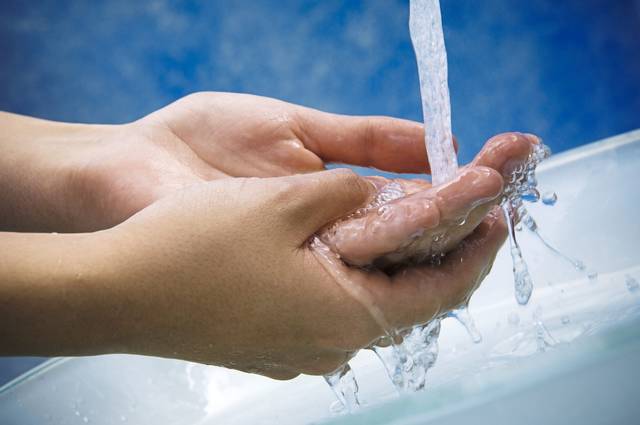A lot of my friends have joked: “It feels like all I did in 2020 was wash my hands!”
All humor aside, it’s my hope that hand hygiene and washing has been reinvigorated and widely adopted as a primary defense against illness in this country.
As I noted in my opinion piece here one year ago, Americans were awfully complacent when it came to handwashing prior to the pandemic (with only 5% of Americans washing their hands correctly after using the bathroom, according to the University of Michigan).
What people may not realize is that over the last year handwashing saved lives. Full stop. According to researchers at the University College London, hand washing 5-10 times per day can reduce the risk of contracting covid-19 by 36%.
What people may also not have realized is that while supermarkets, stores and Facebook feeds were bombarding them with posts about soap and hand sanitizer, 818 million children attended a school without handwashing facilities or soap — about 40% of the world’s schools, according to UNICEF. And the problem isn’t isolated to schools. According to the World Bank, a little more than 1% of households in Liberia had a bar of soap in the home.
I’m the founder and executive director of a Pittsburgh-based nonprofit organization called Eco-Soap Bank. We have the simple mission to employ women to recycle leftover hotel soap and redistribute it to people in need. However, when the covid-19 pandemic brought unprecedented hardship to the hotel industry, our supply vanished overnight — at a time when the world needed soap more than ever.
So we had to start thinking creatively. Upon reaching out to dozens of factories around the world, including here in the United States, we discovered something monumental — an estimated 25,000 metric tons of soap (or 250 million bars of soap and other items) were being thrown away each year by manufacturers. Every industry generates waste or unwanted products, but to our recycling-minded team, unwanted soap is basically hygiene gold.
Leveraging this new supply, during the pandemic we provided soap and hygiene education to over 2.5 million people across 22 countries — including over 2,500 refugee camps, schools, and health clinics.
But it wasn’t just people abroad that needed hygiene supplies — we also did our part for Pittsburgh. We supplied over 7,500 gallons of liquid soap and over 25,000 bars of soap to local partners, shelters and food banks for redistribution to our community’s lowest income residents and families. And we are looking to reach 20,000 more families this spring.
SNAP benefits (more commonly known as “food stamps”) do not cover the purchase of hygiene items. According to Feeding America, more than 34% of low-income families in a U.S. survey reported challenges affording basic household goods in the past year, including soap and personal care items. Furthermore, nearly one-third of families unable to afford household goods report bathing without soap or reusing diapers in order to get by without these basic necessities.
As a community, we must rally around hygiene as a fundamental human right — just as we all agree that food and nutrition are basic rights, too. I also call upon the foundation community in Pittsburgh to support the ongoing provision of hygiene products which have the potential to save lives.
While some may dub 2020 as the “Year of the Soap Bar”, our work is just beginning — the pandemic is still omnipresent, and with simple hygiene, we can save lives. Together.
Samir Lakhani, a University of Pittsburgh graduate, is the founder and executive director of the nonprofit Eco-Soap Bank (ecosoapbank.org)








